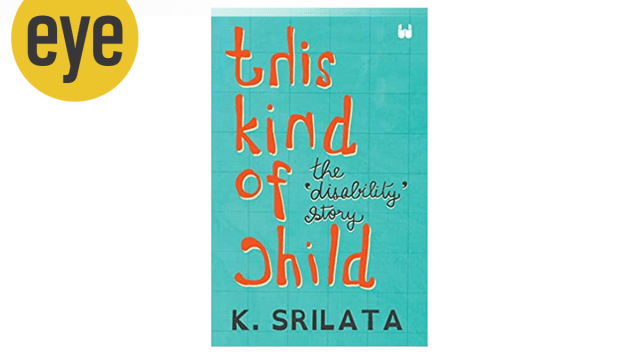K Srilata’s This Kind of Child is an empathetic look at the many facets of the disability narrative
The book asks the question, 'What does it mean to live in this body?' and shows us that we are all seeking an answer to it
 This Kind of Child: The Disability Story
K Srilata
Westland
336 pages
Rs 599 (Source: Amazon.in)
This Kind of Child: The Disability Story
K Srilata
Westland
336 pages
Rs 599 (Source: Amazon.in)What is it like knowing that you are considered different, and blamed for it? When you don’t fit into what is considered to be the norm, say, at a school? When you are told that there is no place for you? The starting point of This Kind of Child by poet, academic, writer, and translator, K. Srilata, was originally a series of short stories that are interconnected through a character inspired by her daughter, and that tried to answer these questions. As she writes, “…it was my daughter who was, in some senses, its protagonist.”
Those short stories remain in the book, but are now at the end. This Kind of Child, in fact, encompasses many more narratives, is far-reaching in its scope, and provides a three-hundred-and-sixty-degree overview of the story of disability. After all, as mentioned in the Introduction of the book, “we all know someone who has a disability.” In fact, currently, an estimated 1.3 billion people have experienced some form of a disability (according to the World Health Organization), where: “…disability is an evolving concept and that disability results from the interaction between persons with impairments and attitudinal and environmental barriers that hinders their full and effective participation in society on an equal basis with others.”
These words of the international human rights treaty have been adopted by the United Nations General Assembly, and it is this perspective that This Kind of Child brings out. It shows the failure of institutions and society that result not only in hindering the participation of people with impairments, but also their being punished for being imperfect.
What makes this book unique is the fact that various voices are given space in this book. Thus, there are stories about people who aren’t neurotypical, the essays, interviews and first-person accounts of and conversations with caregivers, families — siblings, children, and parents
— and educators.
The book has been divided into seven “mini books” that reflect these: Book One — School – comprises the accounts of young people who “don’t fit” the school system. The essay by Ananya Kambhampati about her experience of the school system, of being labelled “an idiot” or, simply, “bad”, for not being able to do things others her age master effortlessly is particularly moving, as is her account of not giving up, being home-schooled, and wanting to be a music therapist in the future.
Book Two, On Our Terms has the perspective of people who identify as disabled, and an essay by Kim about coming out to their partner about their disability, and coming to terms with receiving care and accepting it is a thought-provoking view of the “dance between these two poles”.
Book Three, The Whisper of Your Head Tilting, focuses on the idea of what we think of when we talk about seeing, especially through a lovely essay by Anannya Dasgupta. In it she describes meeting Megan, a legally blind woman, their becoming friends-turned-into-family, and realizing that getting the light right is actually about the love and emotion (and not about ‘getting the light in the eyes’) of the people being photographed.
Book Four and Five, Love’s Labour and Siblings and Children, respectively, has the voices from the other side — of the parents, siblings, and children of persons with disabilities. Here, essays by and conversations with the families of people with disabilities describe the joys, frustrations, and learning in their lives. For instance, Karthika Satyanarayanan describes growing up with a father affected by polio, realising, “people with disabilities are not fragile or delicate — they just need some help to navigate a world that is not made for them.”
This key point is brought out in the last two parts as well, with Book Six, Creating Roadmaps and Spaces describing the experiences of educators or people who provide support for persons with disabilities, and how the families have to constantly battle between letting go and holding on to their loved ones with disabilities. The final part, Book Seven, You Expert Woman, You, the set of interleaved short stories mentioned earlier, shows this beautifully through the character of Muniya, and through the description of the cycle of grief, rage, and guilt Muniya’s Ma goes through for Muniya ‘not being enough.’
Ultimately, This Kind of Child asks us the question “What does it mean to live in this body?” and shows us that we are all seeking the answer to this.
Jonaki Ray is a poet, writer, and editor based in New Delhi. Her poetry collection, Firefly Memories (Copper Coin) and chapbook, Lessons in Bending (Sundress Publications) are forthcoming in Spring 2023.





- 01
- 02
- 03
- 04
- 05


























